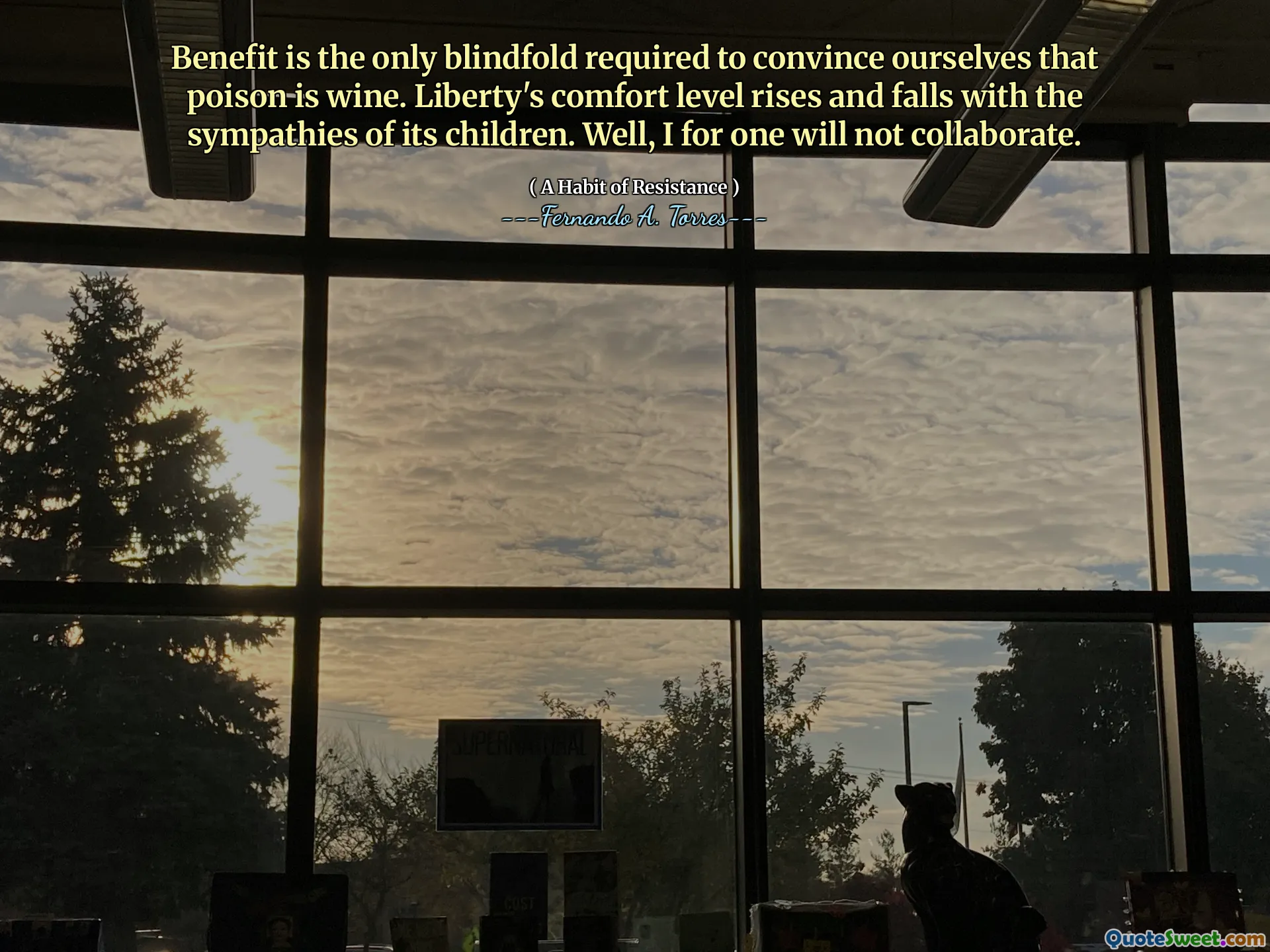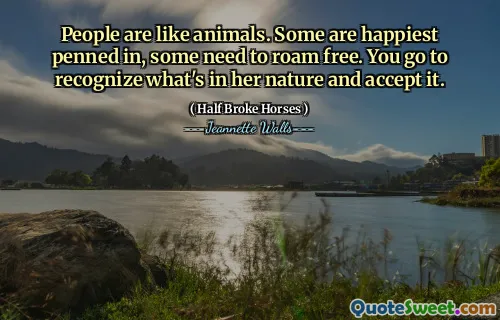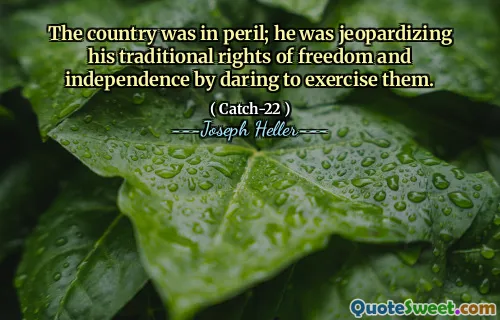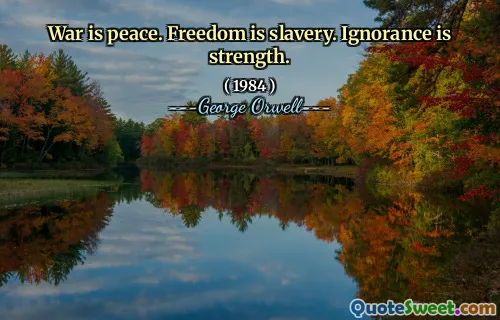
Benefit is the only blindfold required to convince ourselves that poison is wine. Liberty's comfort level rises and falls with the sympathies of its children. Well, I for one will not collaborate.
This quote vividly illustrates the peril of overlooking or rationalizing harmful actions when they are presented as advantageous or beneficial. The metaphor of a blindfold underscores how individuals can be blinded by the promise of benefit, dismissing obvious dangers or moral issues—equating poison with wine simply because it offers immediate gratification or gain. It highlights a dangerous tendency to prioritize personal or collective comfort over discernment and integrity. The remark on liberty emphasizes its fragile nature, susceptible to the shifting sympathies and opinions of the people, suggesting that freedom isn't an absolute state but one maintained through active vigilance and moral clarity. The decisive statement of refusal to collaborate resonates as a call for resistance against unjust systems or corrupt influences, emphasizing personal integrity and resistance to complicity. Such messages remain profoundly relevant today, reminding us to critically assess the true nature of what is presented as beneficial and to stay attuned to the moral implications of our actions. Instead of blindly accepting convenience or superficial comfort, we ought to scrutinize the deeper realities behind promises and appearances, especially when it concerns fundamental values like liberty. The quote challenges us to be discerning citizens, aware of manipulations and willing to stand against practices that appear advantageous but are fundamentally harmful. Engaging with it encourages ongoing reflection on how societal complacency can erode core principles, a timeless lesson from the realm of personal morality to political activism.






